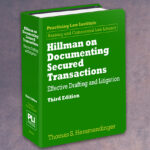
Fifth Circuit’s Battling Over Meaning Of Bible Verses, Because That’s How They Make Law
//
 The founding fathers may have tried their best to enshrine the division of church and state into the fabric of our nation, but don’t mention that to the far right. The notoriously conservative Fifth Circuit is out there calling one another to task over the meaning of a Bible verse. FOR REAL. And no, the case has nothing to do with religion or the First Amendment. The reference to the Book of Matthew appears to just be included for funsies.
The founding fathers may have tried their best to enshrine the division of church and state into the fabric of our nation, but don’t mention that to the far right. The notoriously conservative Fifth Circuit is out there calling one another to task over the meaning of a Bible verse. FOR REAL. And no, the case has nothing to do with religion or the First Amendment. The reference to the Book of Matthew appears to just be included for funsies.
The decision has to do with the certification of a class action — not the first thing I think of when contemplating the Bible, but here we are. As Mark Joseph Stern points out on X:
googletag.cmd.push( function() { // Display ad. googletag.display( "div-id-for-top-300x250" ); });Over at the 5th Circuit, Jim Ho and Andy Oldham are arguing over the meaning of a Bible verse. https://t.co/RUeSpnqEGM pic.twitter.com/TrXssr7Ea6
— Mark Joseph Stern (@mjs_DC) September 11, 2023
 Sponsored Experience AI-Powered Contract Negotiation With Ontra Tired of negotiating and managing routine contracts? Ontra makes the most of human expertise and proprietary AI assistance to automate contracts like never before. From Ethan Beberness
Sponsored Experience AI-Powered Contract Negotiation With Ontra Tired of negotiating and managing routine contracts? Ontra makes the most of human expertise and proprietary AI assistance to automate contracts like never before. From Ethan Beberness Specifically, Judge James Ho uses the Bible for usage of the word “seek.” Again, exactly what I think of when I think “Bible.”
As used by Subparagraph (aa), “to seek” means “[tJo ask for, demand, request (from a person).” OXFORD ENGLISH DICTIONARY (2nd ed. 1989), 5.0, seek, sense 1.8.0. See also MATTHEW 7:7 (“Ask, and it shall be given you seek, and ye shall find; knock, and it shall be opened unto, you.”). And although the Bible teaches that those who seek from the Lord shall find, when we seek something from our fellow man, we don’t always get it.
‘The dissent theorizes that no one ever “seeks” anything “without at least an infinitesimal hope of finding” it. Post, at _. But that defies common usage of the term.
googletag.cmd.push( function() { // Display ad. googletag.display( "div-id-for-middle-300x250" ); }); googletag.cmd.push( function() { // Display ad. googletag.display( "div-id-for-storycontent-440x100" ); }); googletag.cmd.push( function() { // Display ad. googletag.display( "div-id-for-in-story-youtube-1x1" ); });What even is the point of the citation to Matthew? The actual dictionary definition was doing a fine job of making the legal argument. But the Oxford English Dictionary doesn’t virtue signal you’re totally cool with a theocracy, so let’s call in the King James Bible.
And Ho has a penchant for writing things in court cases in order to signal his right-wing bona fides, not because it’s essential to his decision-making process. Plus Ho takes the opportunity in the next paragraph to crow about the dismantling of affirmative action.
Sponsored Sponsored Documenting Secured Transactions: A New Guide For Practitioners A newly updated PLI treatise provides both the legal framework and practical guidance on documenting secured transactions, including important details about 2022 amendments to the UCC. From Practising Law Institute
Sponsored Documenting Secured Transactions: A New Guide For Practitioners A newly updated PLI treatise provides both the legal framework and practical guidance on documenting secured transactions, including important details about 2022 amendments to the UCC. From Practising Law Institute  Sponsored Survey Results: A Perspective On The Private Markets Ontra surveyed over 400 private markets professionals about what to expect this year and their legal process pain points. From Kerry G. Benn, Ontra
Sponsored Survey Results: A Perspective On The Private Markets Ontra surveyed over 400 private markets professionals about what to expect this year and their legal process pain points. From Kerry G. Benn, Ontra  Sponsored Webinar: How Private Equity Is Gaining A Competitive Edge With AI Join Ontra and guests from Insight Partners and Harvard Business School as they discuss how firms can capitalize on AI while mitigating risk From Ontra
Sponsored Webinar: How Private Equity Is Gaining A Competitive Edge With AI Join Ontra and guests from Insight Partners and Harvard Business School as they discuss how firms can capitalize on AI while mitigating risk From Ontra  Sponsored Webinar: How Private Equity Is Gaining A Competitive Edge With AI Join Ontra and guests from Insight Partners and Harvard Business School as they discuss how firms can capitalize on AI while mitigating risk From Ontra
Sponsored Webinar: How Private Equity Is Gaining A Competitive Edge With AI Join Ontra and guests from Insight Partners and Harvard Business School as they discuss how firms can capitalize on AI while mitigating risk From Ontra When a prospective student applies to an academic program, we say that he is “seeking” admission. See, e.g, Applications Remain High, HARY. GAZETTE (Feb. 3, 2014) (“This year, 34,295 people sought admission to the Class of2018. Last year, a record 35,023 applied …..”); Lindsay Ells, Justice Dept. Slams Harvard. Admissions in Affirmative-Action Filing, CHRON. Higher Educ. (Aug. 30, 2018) (discussing “a lawsuit brought on behalf of Asian-American students who had sought admission to the university”). And that is so even though it’s common knowledge that an applicant with grades and test scores below a certain level may not have even an “infinitesimal hope”of obtaining the admission he seeks. So too here: A plaintiff without realistic hope of getting the defendant to transfer money into his account can still seek significant relief from that defendant. This is especially so because the court has the power to award a judgment of money damages even against an insolvent defendant.
In any event, Ho’s interp of Matthew isn’t going unnoticed by the dissent — written by Andy Oldham.
First, the majority opinion’s examples support my understanding of Subparagraph (aa). The Bible says “seek, and ye shall find” precisely because God gives us hope and faith, MATTHEW 7:7—two things that plaintiffs do not have in “seeking” to recover from a defunct shell company. And when a student “seeks” admission to a college or university, he or she obviously hopes to get in even if the odds are long—again, a hope that plaintiffs do or have in “seeking” to recover from a defunct shell company. True, a plaintiff can “seek” to get rich by playing the lottery, even “without any realistic hope of” winning it. Ante, at 16. But even the lottery player has a non-zero chance of winning, which is more than plaintiffs’ chance of recovering from South Pointe.
googletag.cmd.push( function() { // Display ad. googletag.display( "div-id-for-bottom-300x250" ); });So, now we’re talking about God giving “us hope and faith”? VERY SECULAR, very relevant to class certification. And very, *very* Fifth Circuit.
Sponsored Sponsored NetDocuments’ Rebecca Sattin On Customer-First Approach And Future-Proofing Your Firm How a customer-focused transition from Worldox to NetDocuments sets the stage for a future of successful tech advancement. From Ethan Beberness
Sponsored NetDocuments’ Rebecca Sattin On Customer-First Approach And Future-Proofing Your Firm How a customer-focused transition from Worldox to NetDocuments sets the stage for a future of successful tech advancement. From Ethan Beberness  Sponsored Experience AI-Powered Contract Negotiation With Ontra Tired of negotiating and managing routine contracts? Ontra makes the most of human expertise and proprietary AI assistance to automate contracts like never before. From Ethan Beberness
Sponsored Experience AI-Powered Contract Negotiation With Ontra Tired of negotiating and managing routine contracts? Ontra makes the most of human expertise and proprietary AI assistance to automate contracts like never before. From Ethan Beberness  Kathryn Rubino is a Senior Editor at Above the Law, host of The Jabot podcast, and co-host of Thinking Like A Lawyer. AtL tipsters are the best, so please connect with her. Feel free to email her with any tips, questions, or comments and follow her on Twitter @Kathryn1 or Mastodon @[email protected].
Kathryn Rubino is a Senior Editor at Above the Law, host of The Jabot podcast, and co-host of Thinking Like A Lawyer. AtL tipsters are the best, so please connect with her. Feel free to email her with any tips, questions, or comments and follow her on Twitter @Kathryn1 or Mastodon @[email protected].
Andy Oldham, Bible, Courts, Fifth Circuit, James Ho
Introducing Jobbguru: Your Gateway to Career Success
The ultimate job platform is designed to connect job seekers with their dream career opportunities. Whether you're a recent graduate, a seasoned professional, or someone seeking a career change, Jobbguru provides you with the tools and resources to navigate the job market with ease.
Take the next step in your career with Jobbguru:
Don't let the perfect job opportunity pass you by. Join Jobbguru today and unlock a world of career possibilities. Start your journey towards professional success and discover your dream job with Jobbguru.
Originally posted on: https://abovethelaw.com/2023/09/fifth-circuits-battling-over-meaning-of-bible-verses-because-thats-how-they-make-law/